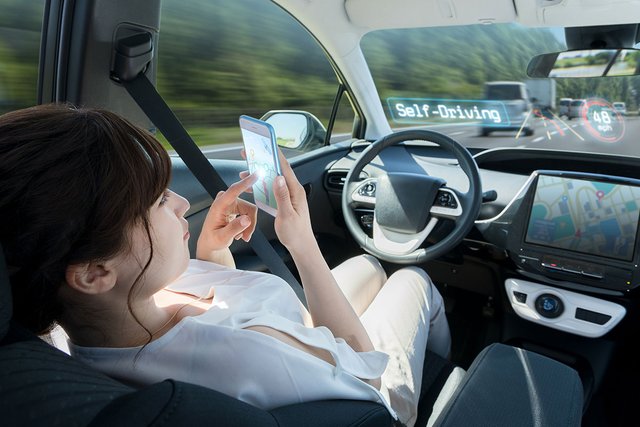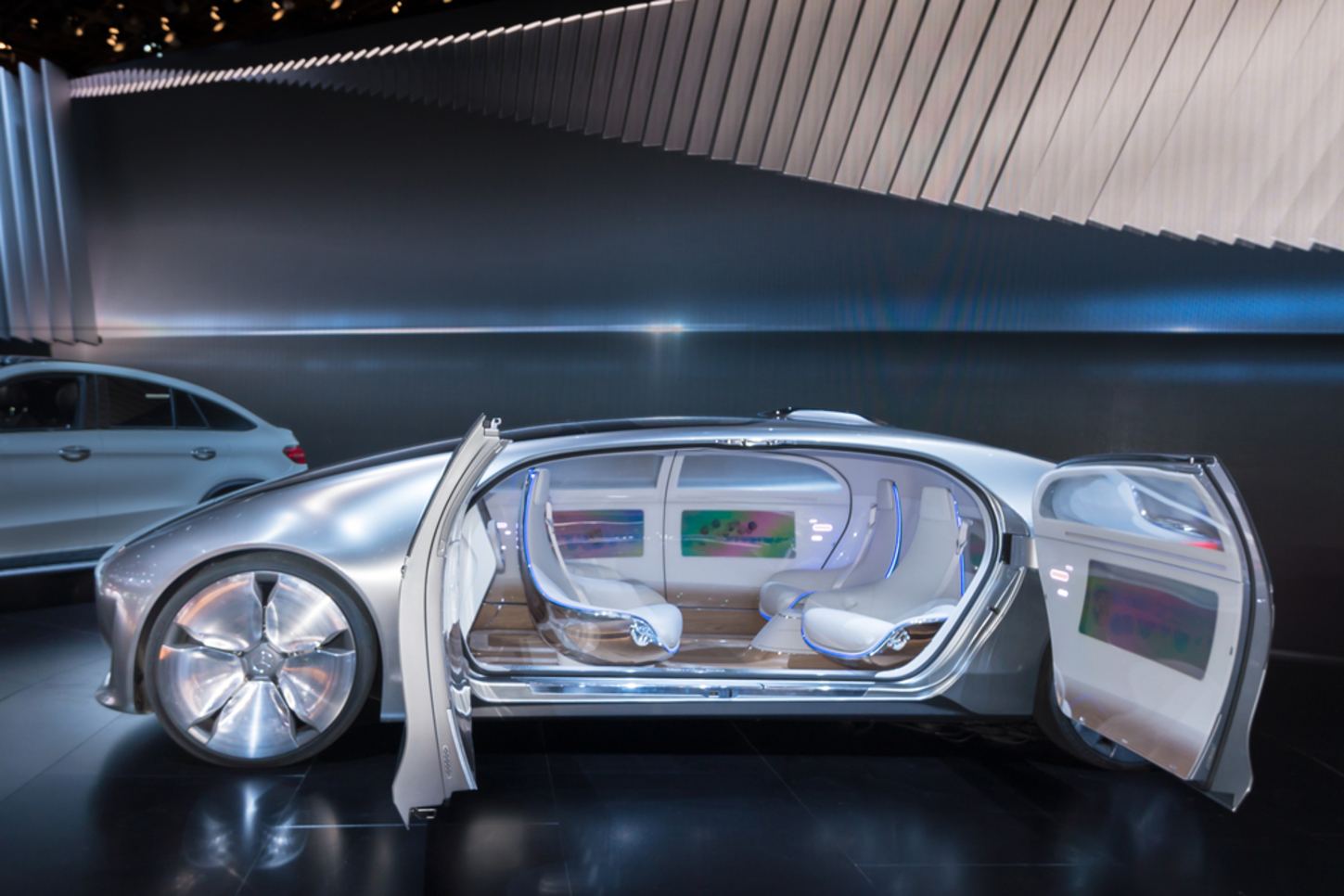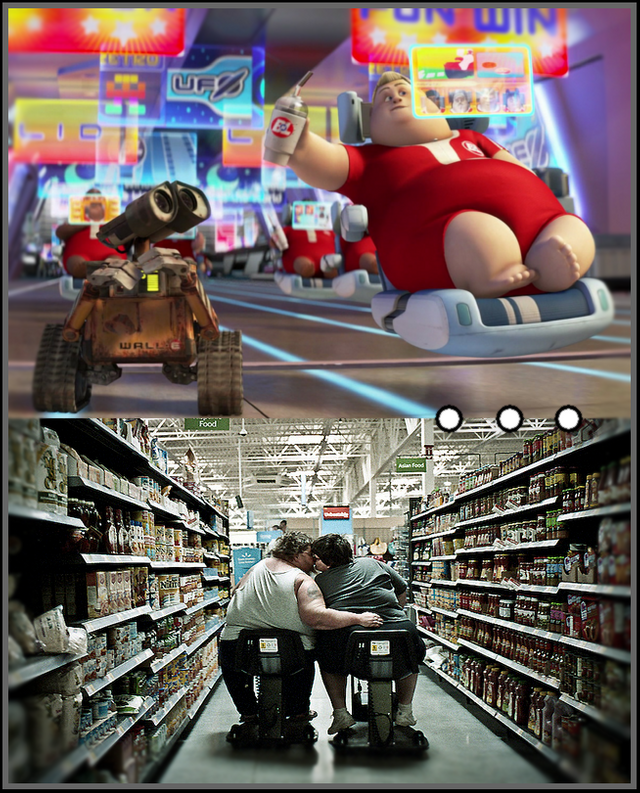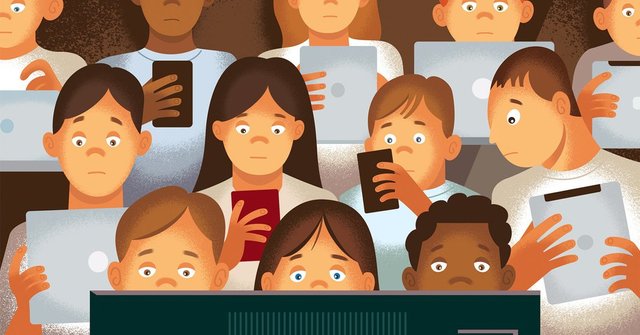Are Self-Driving Cars Degrading The Human Experience?
Do we need better cars? Or do we need better humans?

I certainly think we need the latter.
Cars, we're good on that department, very good. We could take a break.
Now, society... well, it's questionable, very questionable.
We heard the arguments against driver-less cars, like "the tech is not good enough", "more cars on the roads because everyone, even the severely handicapped, can own a car", "it's unsafe, don't trust my life over to a machine", "oh look! a Tesla car on auto-pilot crashed and killed a guy".
This post is not about that. Not about the possibilities or shortcomings of driver-less cars, but about the possible effects of this technology on humans.

Driver-less cars are mainly marketed through fear and laziness.
Fear:
Fear of accidents. This fear, although legitimate, should have its limits or else we'll end up never coming out of our homes.
Fear of "aggressive drivers". Which in general translates to fear of dealing with other people.
Fear of making a mistake. Avoiding making a decision and making yourself responsible for your actions. This leads to anxiety, deterioration of social skills, downgrading communication altogether. Something that is already on the rise.
Laziness:
Addictions, pleasure, distractions. Exploiting the distractions and addictions of people. Telling them how they could be indulging in their pleasures instead of taking responsibility of their transportation mobility, which is just another form of corporeal mobility that should be exercised and improved upon like any other mobility.
Will the undermining of mobility expand to other fields, like walking? When will we have self-walking legs? Are these pulsating shoes the beginning of this?
Well, at least you would still walk, your mind wouldn't get the exercise, just your legs.
Perhaps I'm being optimistic here. Even walking can go away at this pace... Obesity is helping a lot with that... Hmmm, that movie Wall-E comes to mind...

When driving, we become one with the vehicle. Our character is manifested through our driving. We connect not only with the machine but with others because we drive among others. It goes from a mechanical procedure to a social one.
Street lights and certain laws keep some uniformity but most of it is spontaneous, anarchic, human interaction nonetheless.
We deepen our social connection with our cities, with other humans, when we participate in this transportation dance we call driving.
Taking driving away can only dampen our human social experience and development, making driver-less cars an anti-social measure.
So, by improving on one front you are losing on another. Which thing is needed the most for happiness? Your car or your personality?
- Evolution, challenges, and risk.
No challenge = no room for improvement = degeneration of the human species.
Even though driving is not meant to be a test, but a task to get you from point A to point B, the influential consequences of the mere act cannot be dismissed when evolution is a constant reality.
Driving is a skill. You execute it according to your abilities, and like any other skill it can be improved.
Two different individuals, one with driving experience and one without, will not see the physical world the same way. Their reflexes will not be the same because their motor skills did not go through the same procedures.
Where experience is absent, knowledge resembles a guess.

- Spatial Awareness:
Movement is all about limits. If you know the limit, you know how much you need to do to get it done.
For example, kids love pushing limits. They learn a lot from rough play, sports, physical activities, from playing in general. But again, with the decline of our society, so is this being lost.
If driving, a physical activity, increases spatial awareness, why can't it help us prevent accidents outside the world of cars?
Do we need to become less agile to become safer? Where is the logic in that?
This false sense of security, this short-term safety, will affect us long-term.

- Peripheral vision:
People with limited peripheral vision can really have a bad time when driving.
Are those with poor peripheral vision more susceptible to wanting driver-less cars? Wouldn't be bad if there was a study on that.
Could screen addiction be contributing to the deterioration of peripheral vision? Let alone screen over-exposure since the age of... before they could even sit up.
Kids glued to a phone or tablet are not hard to find in public. You might even have some of them in your family. I do.
Driving can very well exercise peripheral vision. Screen-staring does the opposite.
Are short sighted people trying remove our freedom to drive cars?
So while you can save lives on the roads, how many lives will this technology be ruining? How much will the human experience have to be limited to add to this kind of "safety"?
Challenges should not be skipped, but taken and conquered.
Humanity is in dark times. Weakness is seen as a reason to make exceptions and develop workarounds. Strength is seen as toxic and a privilege.
If there is nothing helping correct the inept, people will become accustomed to ineptitude.